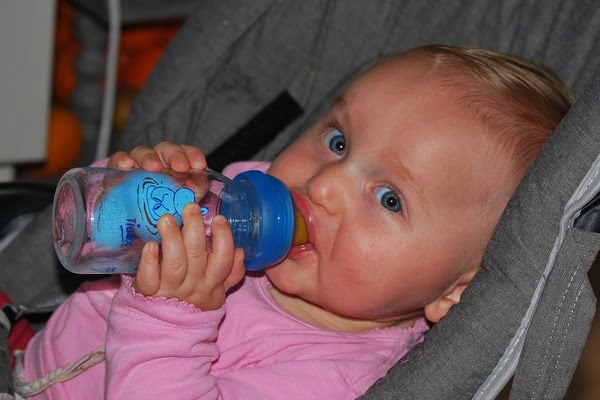- Can Babies Drink Water? Everything You Need to Know
- Why Can’t Babies Drink Water Before Six Months?
- When Can Babies Start Drinking Water?
- Safe Water for Babies: What to Consider
- How to Introduce Water to Babies
- Dangers of Too Much Water for Infants
- Water vs. Milk: Which One Should Babies Drink?
- Final Thoughts: Should Babies Drink Water?
Can Babies Drink Water? Everything You Need to Know
Water is essential for life, but when it comes to infants, introducing it too early can be harmful. Many parents wonder, “Can babies drink water?” The answer depends on the baby’s age and health status. Here’s what you need to know about when and how to introduce water to your baby safely.
Why Can’t Babies Drink Water Before Six Months?
Babies under six months get all the hydration they need from breast milk or formula. According to WebMD and the Australian Health Guidelines, giving a baby water too early can lead to serious health risks, such as:
- Water intoxication: Excess water dilutes sodium levels, leading to seizures, brain damage, or coma.
- Nutritional deficiencies: Water may reduce breast milk or formula intake, depriving babies of essential nutrients.
- Kidney overload: Babies’ kidneys are still developing and cannot handle excess fluids efficiently.
When Can Babies Start Drinking Water?
From 6 Months Onward
Once babies reach six months, small amounts of water can be introduced. However, breast milk or formula should remain their primary source of hydration.
- Recommended amount: 4–8 ounces (118–236 mL) per day.
- How to offer water: Use a small cup rather than a bottle to encourage cup-drinking skills.
- Boiled and cooled water: For babies under 12 months, tap water should be boiled and cooled before consumption.
Safe Water for Babies: What to Consider
Tap Water
- Tap water often contains fluoride, which helps prevent tooth decay.
- Boil water for babies under 12 months to eliminate potential contaminants.
Bottled Water
- Not recommended due to possible high sodium (salt) or sulfate levels.
- Only use in emergencies and ensure it’s low in sodium (<200 mg/L) and sulfate (<250 mg/L).
Well Water & Filtered Water
- Untested well water may contain harmful contaminants like lead.
- Always use tested and purified water for baby formula preparation.
How to Introduce Water to Babies
- Start Small: Offer 2–3 ounces (60–90 mL) at a time in a cup.
- Not a Replacement: Continue prioritizing breast milk or formula.
- Monitor for Reactions: Look out for signs of diarrhea, vomiting, or excessive urination.
- Avoid Sugary or Flavored Drinks: No juice, soft drinks, or teas for babies under 12 months.
Dangers of Too Much Water for Infants
Excess water consumption can lead to:
- Electrolyte Imbalance: Causes hyponatremia, a dangerous drop in sodium levels.
- Seizures & Brain Swelling: Due to sodium dilution.
- Malnutrition: Drinking too much water reduces milk intake, leading to growth deficiencies.
Signs of Water Intoxication in Babies:
- Irritability or confusion
- Drowsiness or lethargy
- Swelling (face, hands, or feet)
- Seizures or muscle twitching
If you notice these symptoms, seek medical help immediately.
Water vs. Milk: Which One Should Babies Drink?
| Age Group | Primary Drink | Water Intake Recommendation |
|---|---|---|
| 0-6 months | Breast milk or formula | No water allowed |
| 6-12 months | Breast milk or formula | Small sips (4-8 oz/day) |
| 12+ months | Water + whole milk | Water as the main drink |
Final Thoughts: Should Babies Drink Water?
- Before 6 months: No. Babies should only consume breast milk or formula.
- 6–12 months: Yes, but in small amounts (4–8 oz/day). Continue prioritizing breast milk or formula.
- After 12 months: Water becomes the primary drink alongside solid foods.
By following these expert guidelines, you can ensure your baby stays healthy and hydrated without risks.
The following post may interest you
How to Introduce New Foods to a Baby | Complete Guide
Sources
Manganese Intake in Babies: Drinking Water plus Formula Can Cause High Exposures
https://ehp.niehs.nih.gov/doi/full/10.1289/EHP9786
Determination of essential and non-essential element contents of drinking water and baby water for infant’s nutrition
https://www.degruyter.com/document/doi/10.1515/mgmc-2021-0021/html
Effect of varying water intake on renal function in healthy preterm babies

